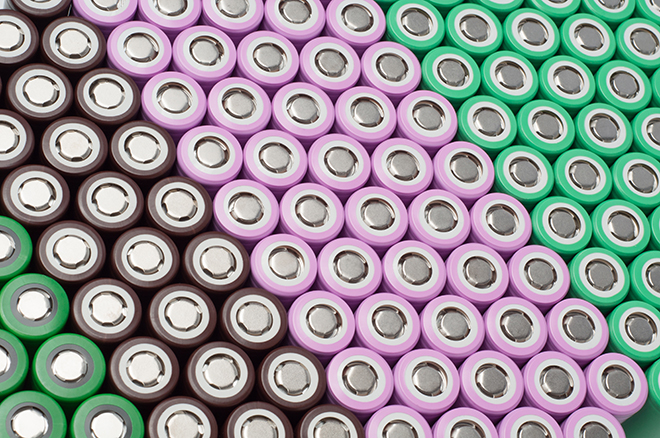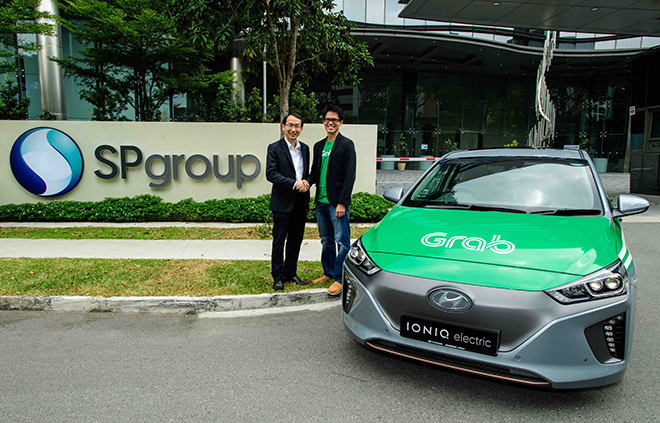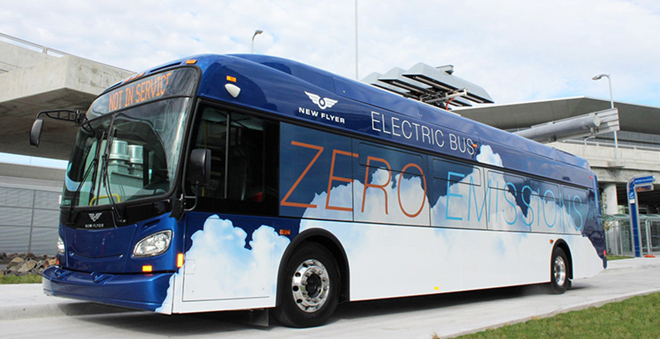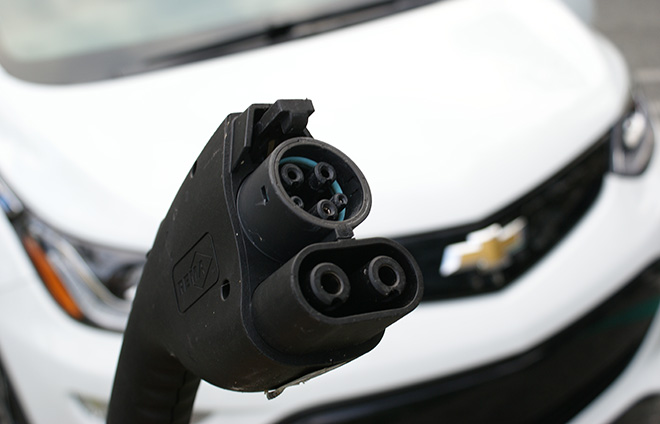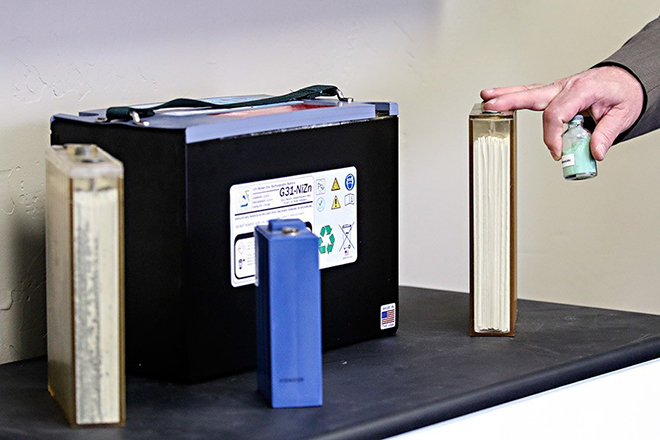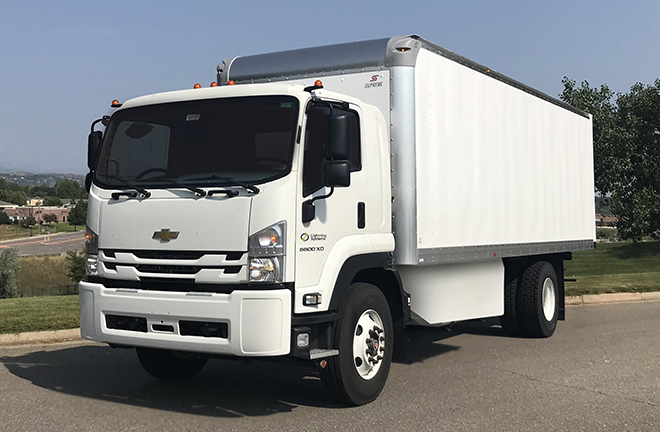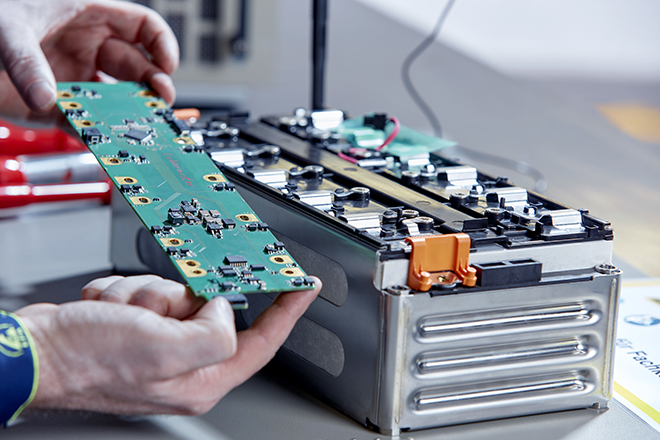Volkswagen plans to launch an electric car sharing service in several major cities under its We Share brand. The first fleet of vehicles will be rolled out in Berlin, and will include 1,500 e-Golf when the service begins operating in the second quarter of 2019, with an additional 500 e-up! to follow later. VW says… Read more »
Newswire
University of Michigan researchers develop non-combustible, non-degrading ceramic electrolyte
Scientists at the University of Michigan have developed a solid-state electrolyte which they claim is non-combustible (which is good, because it’s heated to over 1,800° F during manufacturing!) and not vulnerable to dendrite formation due to a stabilizing ceramic layer. The electrolyte has special properties that allow for increased capacities and faster charging rates as well. Current… Read more »
Asian rideshare giant Grab invests in EV fleet, partners with SP Group for fast charging
Singapore-based Grab, which operates rideshare services in seven Southeast Asian nations (and acquired Uber’s Southeast Asian operations in March), has announced a strategic partnership with Singapore electric utility SP Group. Grab plans to add 200 new EVs to its Singapore fleet, beginning in early 2019. The new EVs will use SP’s fast-charging network, and Grab’s… Read more »
YM Tech unveils three new DC high-voltage relays for EVs
Contactor specialist YM Tech presented three new additions to its line of DC high-voltage EV relays at Shanghai’s International Lithium Battery Industry Fair. The new EVH400 DC contactor is rated for 400 A and 1,000 VDC. The EVH600 DC contactor is rated for 600 A and 750 VDC. And the EVH1000 is rated for 100 A… Read more »
Dongfeng Nissan begins production of Sylphy EV for Chinese market
The Nissan Sylphy Zero Emission, Nissan’s first EV made for the Chinese market, has begun rolling off the production line in Huadu, where joint venture partners Dongfeng and Nissan operate a major manufacturing facility. Nissan developed the new model based on the platform of the LEAF and the Sylphy, Nissan’s best-selling sedan in China. “Growth… Read more »
New Flyer wins contract for 40 electric buses in Montréal and Laval
Montréal and the nearby suburb of Laval intend to electrify their bus fleets – the Société de Transport de Montréal (STM) and the Société de Transport de Laval (STL) have committed to buy only electric buses after 2025. The two transit agencies have awarded New Flyer Canada, the Canadian subsidiary of NFI Group, a contract… Read more »
Rebates for up to 80% of the cost of installing DC fast chargers available in Southern California
California aims to have 5 million EVs on its roads by 2030 and to install 250,000 charging stations to support those vehicles. The latest installment in this ongoing story is the Southern California Incentive Project (SCIP), which will make $29 million in rebates available DC fast charging stations in Los Angeles, Orange, Riverside and San… Read more »
ZAF to use $300,000 grant to increase production of nickel-zinc batteries
Nickel-zinc (NiZn) specialist ZAF Energy Systems has received $300,000, the first installment of a $600,000 investment from Missouri’s Department of Economic Development. With the new funding, ZAF will increase production capacity to meet the increasing demand for its NiZn batteries. The company claims that the batteries have double the storage capacity and triple the power… Read more »
Zeem Solutions orders 50 Class 6 electric powertrains from Lightning Systems
Lightning Systems, a developer of zero-emission powertrains for commercial fleets, has announced a new all-electric Low Cab Forward model in the Class 6 segment. The Lightning Electric heavy-duty powertrain will be available in the 19,501-26,000 pound gross vehicle weight rating. Orders are being accepted now, and delivery is to begin in the fourth quarter of… Read more »
AKASOL begins mass production of batteries for Mercedes eCitaro electric bus
This fall, AKASOL is set to begin mass producing batteries for Mercedes-Benz’s eCitaro. AKASOL’s first-generation battery systems will contain ten battery modules for up to 243 kWh per vehicle and a charging rate of up to 300 kW. In order to make this possible, AKASOL uses a water-cooling system to keep its batteries at 25° C in various… Read more »





